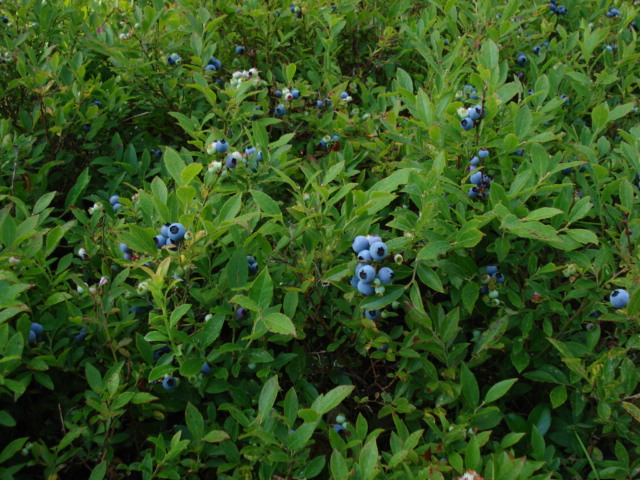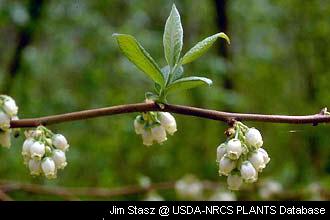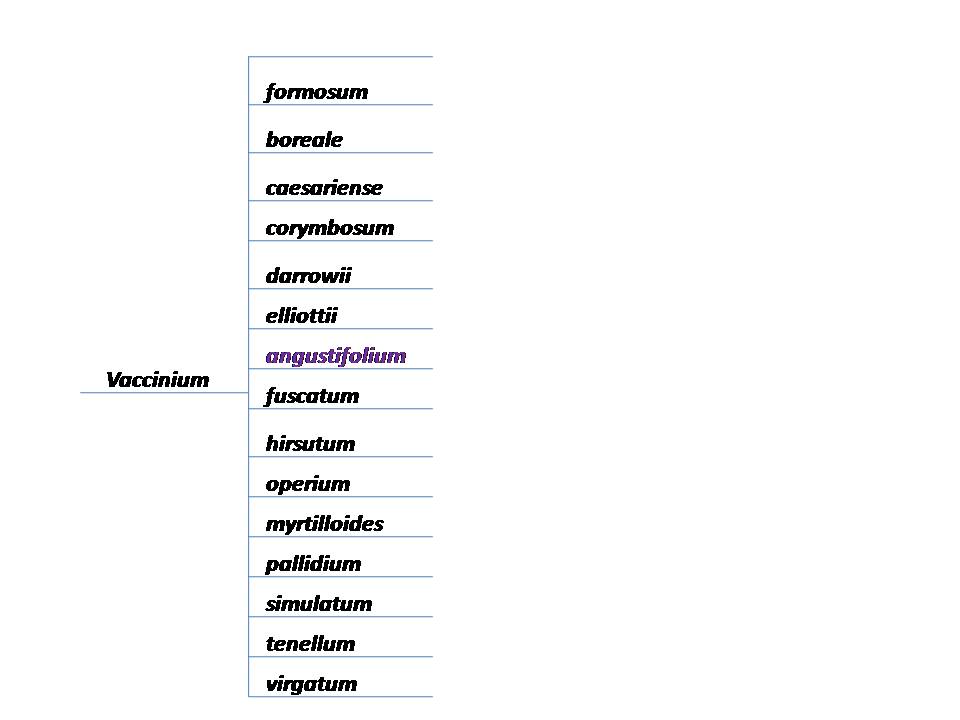Classification
Domain: Eukarya
Kingdom: Plantae
Phylum: Magnoliophyta
Class: Magnoliopsida
Order: Ericales
Family: Ericaceae
Genus: Vaccinium
Species: Vaccinium angustifolium
Eukarya: It has membrane bound organelles and a true nucleus.
Plantae: Produces its own food through the process of photosynthesis and gets its structure from rigid cell walls containing cellulose.
Magnoliophyta: V. angustifolium is a flowering plant and its seeds are covered by true fruits.
Magnoliopsida: V. angustifolium is a dicotyledon, characterized by flower petals in multiples of four or five, netlike leaf venation, and two cotyledons.
Ericales: V. angustifolium belongs to this order because of its
symbiotic relationsh ip with fungi which is characteristic of this order.
ip with fungi which is characteristic of this order.
Ericaceae: Members of this family, including V. angustifolium, are woody shrubs with dark green leaves. Their flowers are urn or bell shaped and are pollinated by insects such as bees. The fruits are multi- seeded berries.
Vaccinium: It is a deciduous shrub that is found throughout the northern hemisphere. This genus includes wild types of blueberries and cranberries.
Vaccinium angustifolium: The common name is the lowbush blueberry. It is a low growing deciduous shrub native to northeastern North America and is identified by dark blue berries.
Phylogenetic Trees
This first phylogenetic tree takes you through a simplified section of the lowbush blueberry phylogeny. It starts with Class Magnoliopsida and breaks down into five orders, including Class Ericales which V. angustifolium is a member of. There are other classes under the Magnoliopsida Class but to understand it better I have only included five. The Order is then broken down into the families (again, I have only included five but there are others). The family is then broken down to the genus. You can follow the phylogeny of V. angustifolium through the purple boxes. Click here for more information.
This phylogenetic tree is based on the genus level of Vaccinium spp. All the separate branches are the different species of blueberries, with Vaccinium angustifolium in purple in the middle. There are other non- blueberry species of the Vaccinium genus. I have not included these on this phylogenetic tree. Some of them include V. myrtillus, the billberry, and V. macrocarpoon, the American Cranberry. For more information on the species found on this phylogenetic tree, click here.

Let's learn about some interesting adaptations of the lowbush blueberry!